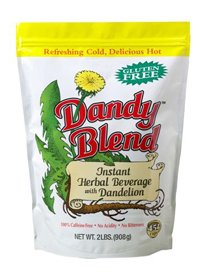
Dr. David Healy, a psychiatrist has some very powerful points in his address to the American Psychiatric Association meeting October 4, 2012. The main one is how physicians are not apprised of all the adverse effects (including death) and side effects of the medication promoted to them, for the purpose of prescribing them to their patients. Or even the true effectiveness of medications. Part of the reason is because of some doctors' close relationships to the pharmaceutical industry. I hope the Mental health community starts to realize it has to lower it's reliance on drugs for those very reasons, and increase it's awareness of the up to date neuroscience information which point to non-drug therapies such as orthomolecular medicine and very effective NADA practices.
.
Gluten Sensitive persons have high rates of methylation problems, more than 50%, which leads to many health issues but especially drug reactions.(In my own chart review, 76% of my patients have at least one abnormal methylation gene, out of two genes studied, and there are a total of 11 methylation genes).
And gluten sensitive persons, especially when they are ingesting gluten, have high rates of depression, schizophrenia (17% increased risk), and other mood disorders. When they seek help, they may be treated with medications without an effort to eliminate the diagnosis of gluten sensitivity (see my previous blog entry on how gluten causes neuropathology), methylation issues and the nutritional deficiencies that go along with it, like low cholesterol, iron,vitamin A,D,E,and K,or zinc.When the gluten is eliminated, the methylation issues cleared with B vitamins and zinc, infections cleared, nutritional deficiencies corrected and other metabolic alterations corrected, mental health can be regained. Drugs may have a role while the person is restoring their health, but much caution is required. Monitoring for suicide ideation, a side effect of many drugs, by asking directly, is part of my routine.
Read part of Dr. Healy's address to psychiatrists:
“I’m going to argue that we need you to be biased. We want you to be biased by treatments that work,” Healy told his colleagues. “I don’t mind if you’re my doctor and you've given talks for industry. My concern is not that you've been paid by industry, but that you've been fooled by industry. The key conflict is whether people are hiding data from you.”
(MORE: Top 10 Drug Company Settlements)
Healy went on to discuss how drug companies have repeatedly concealed important information about the risks of their medications, whether by hiring ghostwriters to spin the results of scientific studies and then getting renowned experts to put their names on the published papers; by employing tricks in clinical trials like using inadequate doses of comparison medications to make the company’s own drug look better; or by simply keeping unfavorable data out of the public domain.
Healy himself has also been targeted directly by drug companies who haven’t been happy with his critiques. In fact, he’s widely believed to have lost an academic job offer at the University of Toronto as a result of one such critical lecture. At the session on Thursday, one slide in his presentation contained information he sought via a Freedom of Information Act request detailing drug maker Eli Lilly’s strategy for shutting Healy down. To counter his public insistence that drug companies reveal hidden drug data, Lilly proposed doing things like planting confederates in the audience of his presentations to ask questions that support industry’s view.
Healy also described how in his own attempts to publish formerly hidden data — which all now reside in the public domain — he encountered legal issues with journals, which ultimately resulted in rejection of publication. The clinical trial data in question in this case showed a greater risk of suicidal acts associated with antidepressants than had previously been revealed.
Healy also referenced hidden data from trials of the antipsychotic drug Zyprexa. “None of them mentioned [that the drug could cause] diabetes or [had] the highest suicide rate in clinical trial history,” he said. Although drug companies are now required by medical journals to register all of their clinical trials with the National Institutes of Health if they wish to publish them — including those that never end up being published — this is not a legal requirement. They can still hide relevant data from the FDA by not disclosing trials that they never attempt to submit to a journal.
Read more: http://healthland.time.com/2012/10/05/psychiatrist-contends-the-field-is-committing-professional-suicide/#ixzz28j0j6PDyThis situation of hidden relevant data concerning medications for all indications is similar in Canada.
Two points I'd like to make:
1. Gluten sensitivity and psychiatric problems go together. Many persons have undiagnosed celiac and gluten sensitive problems, a 400% increase incidence since 1948, and the may be as many as 13 undiagnosed for everyone diagnosed. Maybe 40% of the population is affected in some way. And they have severe health issues including mental health issues. Testing for celiac is imperative.
2.Gluten sensitivity and drug reactions go together. It needs to be understood that the role of medication is as part of a complex of remedies with: diet, supplements, mindfulness, psychotherapy, acupuncture and others. This will avoid serious side effects. With the use of medication, look at the risk/benefit profile and look for all the metabolic abnormalities in the individual.To repeat, this would include, but is not limited to: Homocysteine for methylation issues and the nutritional deficiencies that go along with gluten sensitivity, like low cholesterol, iron,vitamin A,D,E,and K,or zinc. I also look for pyrroluria, a genetic condition that leads to functional zinc and B6 deficiency.
To your health and Happy Thanksgiving to my Canadian readers.
Dr. Barbara







